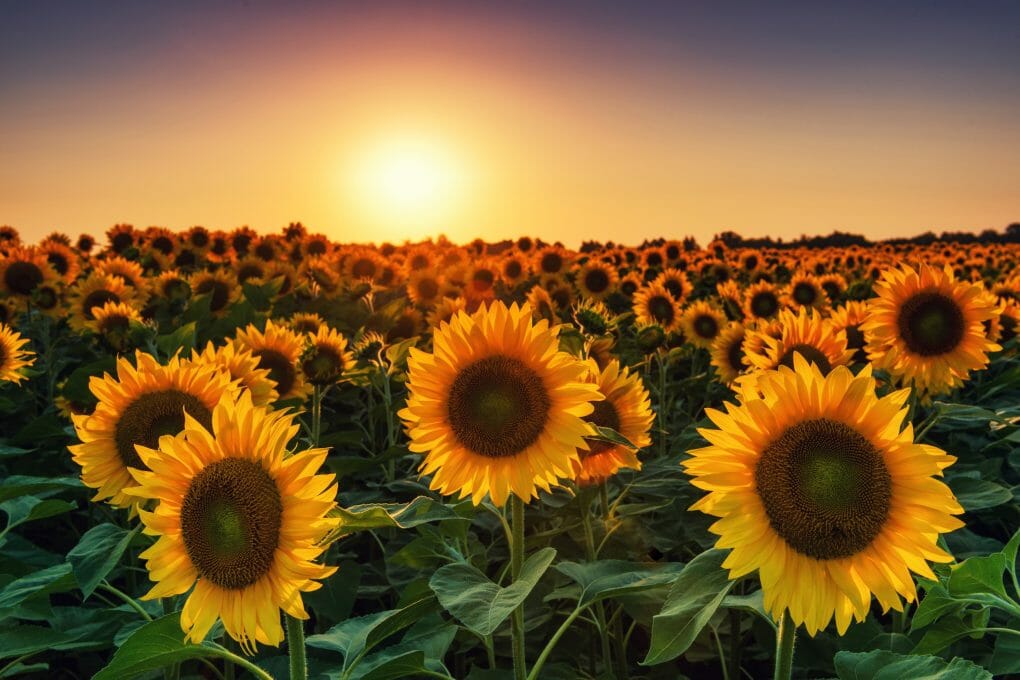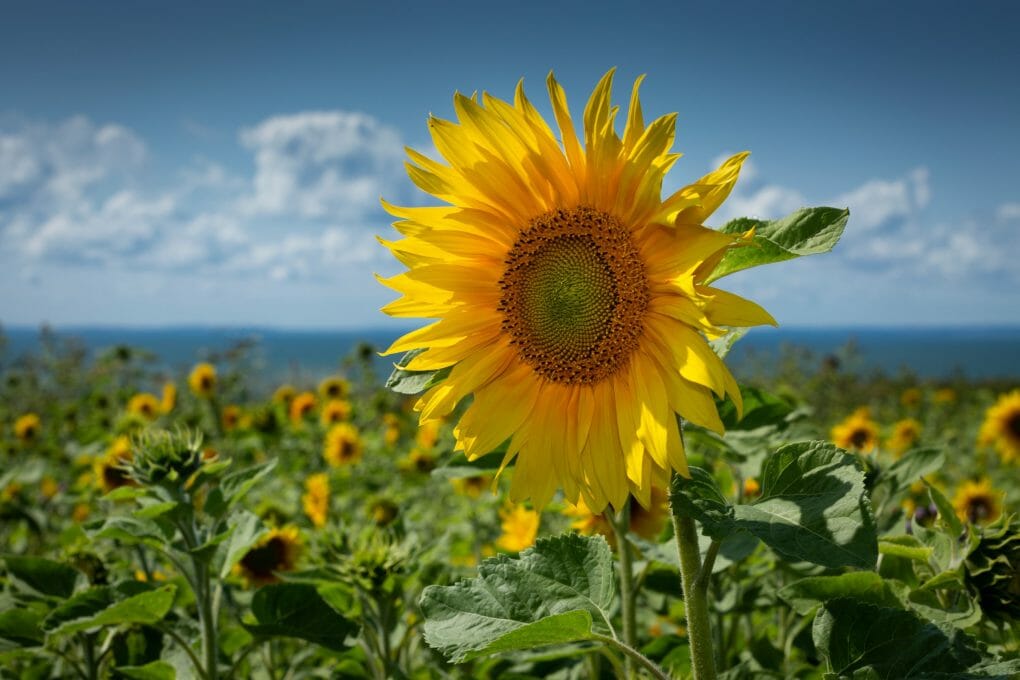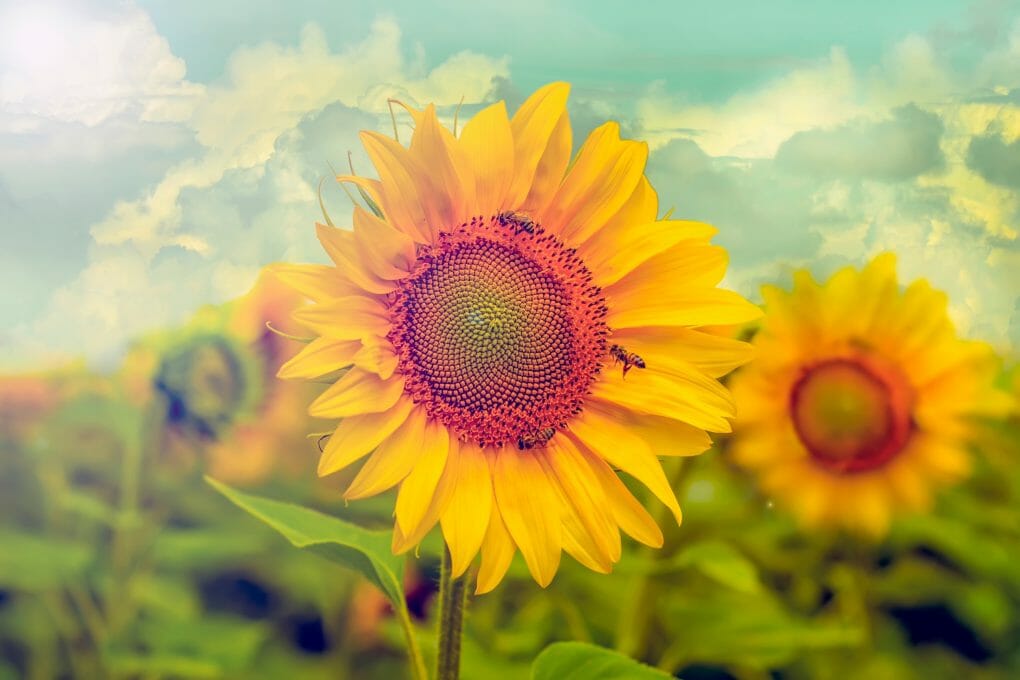How to Harvest Sunflower Seeds: A Beginner’s Guide
Sunflower seeds are one of the most well-known crops in the world and for a good reason. They’re versatile and easy to grow, providing a wide range of benefits to homeowners and farmers alike. In this blog post, we’ll discuss when and how sunflower seeds are harvested and provide tips on maximizing sunflowers’ yield. We’ll also discuss some uses of sunflower seeds. Star reading now.
Table of Contents
Perfect time to Harvest Sunflower Seeds

Before knowing how to harvest sunflower seeds, you must know when to harvest them first. Sunflower seeds are best harvested when dry and hard, which can be determined by snapping the seed pod open and feeling the seeds inside. When the peak seeds are, they will be hard, dry, and have a slightly oily feel. When harvesting sunflower seeds, it is important to do so carefully not to damage the pods or the seeds. But don’t you know that sunflowers are known to reseed themselves? Meaning they can drop their seeds and grow new plants without human intervention.
Harvest Sunflower Seeds
If your sunflowers aren’t ready to be harvested, tie them together and hang them for five days in a warm, dry place. If you’re concerned that the birds will consume your seeds before you can harvest, cover the blossoms with a paper bag in the garden. The stalks can be trimmed before they are ready and dried indoors by hanging them.
Prior to being harvested, sunflower seeds must reach maturity. Waiting for the sunflower head to reach full blossoming is necessary. Generally, farmers wait until their sunflowers begin to brown before harvesting the seeds since this is a sign that the seeds are prepared to fall naturally. Sunflower seeds should be harvested when the husk is dry, and the seeds are shiny. This means the husk should be brown and brittle, but the seeds should remain bright and healthy-looking.
You can remove the husk by hand or with a husk removal tool. Once the sunflower seeds are removed, you can sort them by size. Sizes include small, medium, and large. These sizes help you decide which sunflower seed is best for your purpose. If you have any questions about harvesting sunflower seeds, please ask your local farmer or sunflower farmer for more information.
Sunflower seeds are harvested by cutting the sunflower head off at the base of the stem. Do this carefully to avoid damaging the seeds inside the head. Sunflower seeds can be kept after harvesting in a cold, dark location in an airtight container. Use the sunflower seeds within 3-6 months to enjoy their delicious flavor.
If your sunflowers aren’t ready to be harvested, simply tie them together with string and hang them for five days in a warm, dry place. If you’re concerned that the birds will consume your seeds before you can harvest them, cover the blossoms with a paper bag in the garden. The stalks can be trimmed before they are ready and dried indoors by hanging them.
Uses for Sunflower Seeds
Food Consumption
Sunflower seeds are a popular food item that can be used in various ways. They can be eaten as is, added to salads or other dishes, or ground into flour and used to make bread, cookies, or other snacks. Normally sold with their shells on, sunflower seeds can be consumed either raw or roasted. Sunflower seeds with shells must be cracked open with your teeth before eating, and the shell should not be consumed.

Place the shell between your molars either vertically or horizontally using your tongue. With your teeth, break the shell, then pry the seed from the shell. Eat the seed after spitting the shell out.
Animal Feed
Sunflower seeds can also be used as animal feed. They are high in minerals and proteins, making them an ideal livestock option.
Oil Production
Sunflower oil is a popular cooking oil used in many different recipes. It has a neutral flavor and can withstand high temperatures, making it perfect for frying foods or adding to salad dressings.
Re-Planting
Sunflower seeds can be used to re-plant new sunflower plants. Mix the seeds with soil and water, then plant them in the ground. Sunflower seeds can be harvested when they are dry and brittle. To dry the seeds, spread them out on a screen or a cloth to allow air to circulate and dry them quickly. Once the seeds are dry, store them in an airtight container. If you’re planting sunflower seeds after harvesting, follow the instructions from the seed packet for planting sunflower seeds. This will help ensure that the sunflower seeds grow successfully.
Marketing
Sunflower seeds are also marketed as a natural health supplement. They are high in sunflower oil, antioxidants, and minerals.
They can also be used in cosmetics and body care products, as they contain high levels of vitamin E and other essential nutrients.
Healthy Benefits of Eating Sunflower Seeds
According to WebMD, there are lots of health benefits that you can get from eating sunflower seeds. These are:
Improve Heart Health
They are high in monounsaturated fatty acids, which have been shown to improve your heart’s health. This is because monounsaturated fatty acids reduce the risk of cardiovascular conditions such as arrhythmia and stroke.
Boost Energy Level
While the high protein content of sunflower seeds already helps raise energy levels, other minerals such as vitamin B and selenium can also help keep you energized. Sunflower seeds contain vitamin B1 (also known as thiamin), which can help you turn food into energy, keeping you energetic throughout the day. Selenium can boost blood flow and oxygen delivery to your body.
Regulate Blood Sugar Levels
Sunflower seeds are high in soluble fiber, which helps to regulate blood sugar levels by slowing digestion and absorption of food. This means that you will feel more comfortable during fasting or when trying to manage your diabetes medications.
Boost Brain Function
Sunflower is a good source of antioxidants, protecting your brain from damage caused by free radicals. The antioxidants in sunflower seeds may help improve memory and cognitive function overall.
Immune System Support
Sunflower seeds contain various vitamins and minerals that can boost your immune system and improve your ability to fight illnesses. Zinc and selenium are two examples. Zinc is essential for the immune system, as it aids in the maintenance and development of immune cells. Selenium also helps to reduce inflammation, combat infection, and promote immunity.
Reducing Inflammation

Sunflower seeds may have anti-inflammatory benefits for individuals with acute or chronic inflammation. Sunflower seeds contain anti-inflammatory properties, as well as flavonoids and vitamin E. According to research, regularly eating sunflower seeds and other seeds helped reduce inflammation and improve the risk factors for a variety of chronic illnesses, according to a study.
Saving Sunflower Seeds
Saving sunflower seeds is an excellent method to increase your dietary nutrient intake and build up a supply of emergency food. Antioxidants found in abundance in sunflower seeds can aid to prevent cell deterioration and support healthy skin and hair. They also contain plenty of fiber and protein, which can help control blood sugar levels and provide people with enduring energy throughout the day.
Sunflower seeds should be kept dry and cool if you want to preserve them. Sunflower seeds that have been shelled can be kept in a pantry or refrigerator, however, whole sunflower seeds can be kept in a freezer in an airtight container. To keep sunflower seeds from going bad, it is essential to keep them in a dry atmosphere. When ready to eat, defrost them and sprinkle them over your favorite dishes or include them into a shake or smoothie for a meal in place of a shake or meal. A flexible food that can help you obtain the nutrition you need to stay healthy and energized, sunflower seeds are a terrific source of healthy fats and minerals.
